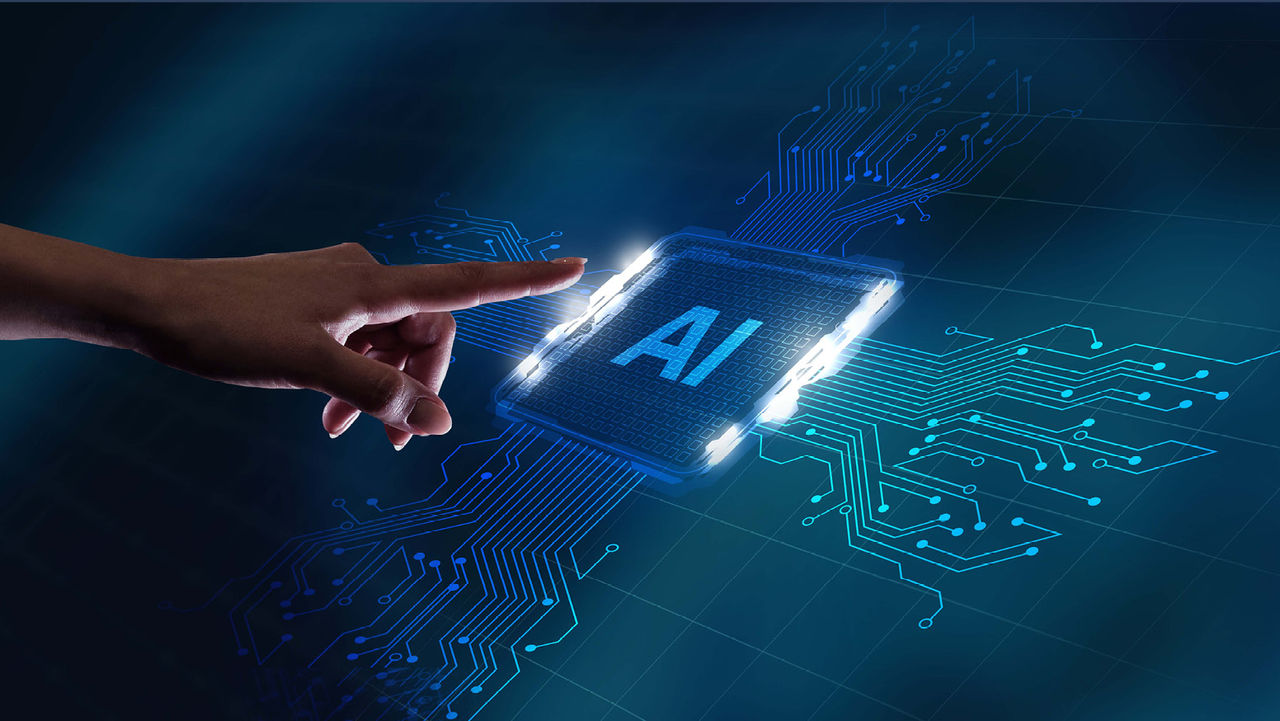Magazine Articles
- Sergei Azernikov, Ph.D.: “Making Better Crowns Using Artificial Intelligence (AI)”
- Sergei Azernikov, Ph.D.: “Utilizing AI to Produce Better Crowns, Faster”
Blog Posts
800-854-7256 USA
Learn how AI is changing the landscape of digital dentistry and manufacturing.

From the lab to the clinic, artificial intelligence (AI) has transformed how dentistry operates. Design software supported by AI and digital scanners has made same-visit restorations not only possible but also easier than ever. Meanwhile, in the laboratory setting, it has made restoration production more accurate and predictable.
In order to make the transition to digital dentistry feasible for more dentists and their teams, Glidewell has devoted considerable resources to becoming the leading digital dental lab. Finding creative solutions to ensure that clinicians can take advantage of a digital lab without significantly altering their workflows. Glidewell wants the burden of change to happen behind the scenes, absorbing the complications of advanced CAD/CAM dentistry while presenting clinicians with an easy-to-use and efficient workflow.
All of this sounds good, but where does AI come into play and how does it help? Glidewell uses AI for both its laboratory workflow and its in-office products such as the fastdesign.io™ Software and Design Station and the fastmill.io™ In-Office Mill, which are part of the larger glidewell.io™ In-Office Solution product line. These offerings give the clinician a mini-lab right in their place of business. For the dentist, however, it does not take extensive investment in new products to enter the digital space. You will discover in this post how Glidewell allows every dentist, no matter their workflow, a chance to benefit from a digital lab.
First, let’s discuss how AI is used in the laboratory setting. For Glidewell, the goal is to create a precise, efficient workflow that provides dentists with predictable, high-quality restorative solutions. To achieve this, a revolutionary process dubbed Glidewell Intelligent Manufacturing (IM) was devised.
With Glidewell IM, the lab can take a clinician’s elastomeric impression and quickly convert it into a digital file — without ever pouring a stone model. Restoration production then starts by using a virtual study model within a design environment enhanced by artificial intelligence, before culminating in a computer-enhanced robotic milling and quality control center.
Simply put, millions of physical and digital impressions that are sent to Glidewell are scanned and stored in an expansive database and design system known as CrownAI™. The CrownAI system then compiles that information and applies it to future cases for a more accurate and natural-looking restoration with little to no need for technician involvement. Each new case is informed by countless previous successful cases delivered by the lab.
The best part of this advanced method is that clinicians don’t have to change their workflow in order to benefit from it! Whether impressions are submitted via traditional VPS molds or intraoral scans, “the approach removes technician-dependent model pouring process variation and with an entire case scanned in less than one minute, affords much faster processing times so restorations can be delivered to the dentist rapidly,” according to one internal study.
The impact of AI is not limited to a manufacturing floor: Digital technology advancements have made accurate, natural-looking same-visit restorations a reality for many dentists, bolstering their practices and improving patient satisfaction. The same database that is used in Glidewell’s laboratories is also supported in Glidewell’s in-office workflows, so dentists using Glidewell’s proprietary design software are backed by the most experienced restorative laboratory in the world.
When utilizing fastdesign.io in conjunction with fastmill.io, clinicians can mill crowns right in their office. The in-office restorative process mirrors that of Glidewell’s production floor, giving the clinician access to the same CrownAI database used in lab-made restorations. Clinicians can quickly and easily create a definitive crown without ever having to send an Rx or wait for delivery.
The fastdesign.io software provides dentists with the ability to review scans taken with a digital scanner almost instantaneously. Once the scan is approved, the system then generates an AI-enhanced design, creating natural-looking restorations ready for milling in the office or fulfillment by the lab. For the dentist, this means far fewer clicks per case. If using the fastmill.io, clinicians can mill crowns using BruxZir® NOW Milling Blocks, the only fully sintered zirconia ready to deliver right from the mill. With no oven time required, clinicians can create crowns from the No. 1 prescribed zirconia in less than 45 minutes.
One interviewee said: “It’s completely flexible and incredibly easy to implement. The process that it creates in the practice is absolutely fabulous. Honestly, the workflow of glidewell.io has changed the way we practice dentistry completely.” Noting that on one hand, Crown AI and MarginAI™ can automate approximately 50% of their restorative design work, whereas larger, more complicated cases can be sent to Glidewell.
Overall, AI offers doctors a wide range of potential benefits, including the ability to make treatment decisions or perform procedure-related tasks with more speed and accuracy than ever before. Additionally, AI provides the opportunity for doctors to improve the quality of restorations they prescribe to their patients, thereby elevating patient treatment.
Magazine Articles
Blog Posts
Send blog-related questions and suggestions to hello@glidewell.com.


